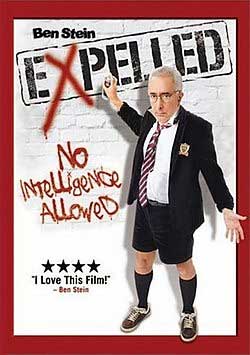
Violence is common to our species. We still follow alpha males (sometimes alpha females too) in religion and politics. And everyone wants to claim more for themselves or their beliefs, secure more territory. The poor many want something for nothing, but it seems the rich will stop at nothing till they get everything. And each group or mass movement desires more converts, more power and influence. Churches have continued to seek power in various ways from the time of Christian Roman Emperors and Medieval rulers to todayʼs Religious Right. But deistic rationalism and scientific advances dethroned the authority of certain biblical tales and helped defang religion in the West. Still we are primates who desire greater control to assuage our fears about lifeʼs uncertainties, and we are eager to join our egos to mass movements, political parties, or to become enthralled with nationalistic fervor, or racist fervor, or other kinds of fervor and lose ourselves in such fervor, a trait we should question if we want greater peace on earth.
Some mass movements claim to hold the key to paradise on earth or in heaven and seek to outlaw all the rest. Marx promised a workerʼs paradise on earth. Religions promise eternal paradise. One at least understands the attraction of grandiose promises—especially when they are accompanied by grandiose fears as well, like eternal hell.
Some apologists for Christianity fear competition from something they call ‘scientism.’ Science has at least greatly increased our food production, introduced vaccines and antibiotics, and along with health and safety and plumbing regulations, increased the average human lifespan by several decades in many countries. Can science create utopia? I doubt any scientist is liable to make such a promise as they are also aware of all the ways nature bites back and ways nature can kill us. Though there are some who promise a singularity is near. But most scientists admit they remain worried about how things can go wrong, how our future technologies can create problems, not only solve them. Science is generally humbler than say, Marxism.
I hold no grudge against any belief system that encourages acts of kindness toward others and eschews violence. But when speaking about the horrors of say, communism, itʼs good to at least level the playing field and also consider the long Criminal History of Christianity (a multi-volume set with that title is available but only in German).
Christians persecuted Hellenists, Jews and rival Christians for centuries.
And the one continent most heavily steeped in Christian churches and prayers for the most centuries was Europe, the same continent that proceeded to blow itself up with a Thirty Years War, and endless smaller wars before and after that one, wars between nations whose people agreed on such beliefs as the Trinity and even creationism. During the 20th century Europe also suffered two World Wars. Germany was still quite Christian at that time, maybe not in the cities as much as the countryside, but there was more countryside back then as well. The votes of Christians in the countryside put Hitler ahead of the rest of the other candidates who were all neck and neck in the cities. Christians elected Hitler to power. The Nazi party itself was founded in a heavily Catholic (and Jew-hating) city in Germany.
European nations have seen more relative peace in the seven or so decades after the second World War, i.e., after the average Europeanʼs religious faith had grown far weaker, than it ever saw during its previous centuries when its religious faith remained much stronger. Of course there has been more peace around the world in general after World War II, with the larger nations concentrating on business ventures rather than military ones.
As for the French Revolution, the Russian communist revolution, and the Chinese communist revolution, true they were all mega-bloody. And often took place in peasant economies where resentments had risen far past the boiling point such as in pre-industrial France, and nineteenth-century Russia and China.
In comparison the American Revolution was also bloody but benefited from the fact that Britain was so far away, and France and Britain had been fighting for centuries, so the revolutionaries in America were able to get France to help them. Also, after the revolutionaries won they were only able to throw out the British soldiers but could not then sail to Britain to overthrow that king and other royals. That is because our revolution did not take place on the same continent or inside the same country like in the French, Russian and Chinese Revolutions. Also keep in mind that America did suffer a bloody war insider her own borders, a Civil War, with Christian ministers being some of the loudest in favor of secession. And the toll of all the Americans killed in that conflict exceeded all the U.S. soldiers killed in both World Wars, Korea, Nam and the first Gulf War. And letʼs not forget all the natives of North and South America and all the African natives who were enslaved persecuted or killed by European colonists for centuries. Europeans who came from the continent with the most churches and most prayers echoed for the most centuries since the birth of Christianity has plenty of blood on its hands. And one can only wonder what the Thirty Years War would have been like if the Catholics and Protestants had had access to modern weapons communications and transportation and if the cities back then were just as populated as in the 20th century.
I suggest reading Eric Hoffer for more information on the similar psychological drives that animate adherents of mass movements be they Christian, Fascist or Communist.
One should also read about Christianityʼs past, because it was Christian rulers who instituted the idea of thought control, who attempted to force specific theological beliefs upon the whole populace, and who claimed that denying such specific theological beliefs was tantamount not just to heresy but to treason. Right at the beginning of the Roman Emperor Justinianʼs famed book of Laws are his declarations concerning religion and how non-Trinitarian Christians must be judged demented and insane and worthy of the Emperorʼs temporal punishment. Theologians for their part pointed out that spreading heretical views was tantamount not just to murdering childrenʼs bodies, but murdering their souls eternally. And a father had a biblical right to protect his child against murder, even the right to kill anyone who dared attack his child. And the ruler was the father figure for his people. Christian popes, as well as the great Reformers Luther and Calvin agreed that magistrates MUST persecute heretics. Click on the highlighted words at the beginning of this list.
See also these declarations by theologians.
Also see, The Great and Holy War: How World War I Became a Religious Crusade (received Christianity Todayʼs Book Award of Merit for 2015).
And see, Is Religion Connected to Violence?
Also check out, The Uniqueness of the Christian Experience?


